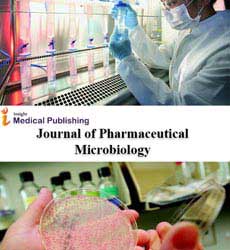Abstract
Lab Investigations for Different Types of Hypertension
Human body is continuously exposed to different types of agents that results in the pro duction of reactive species called as free radicals (ROS/RNS) which by the transfer of their free unpaired electron causes the oxidation of cellular machinery. In order to encounter the deleterious effects of such species, body has got endogenous antioxidant systems or it obtains exogenous antioxidants from diet that neutralizes such species and keeps the homeostasis of body. Any imbal ance between the RS and antioxidants leads to produce a condition known as ‘‘oxidative stress’’ that results in the development of pathological condition among which one is diabetes. Most of the studies reveal the inference of oxidative stress in diabetes pathogenesis by the alteration in enzy matic systems, lipid peroxidation, impaired Glutathione metabolism and decreased Vitamin C levels. Lipids, proteins, DNA damage, Glutathione, catalane and superoxide dismutase are various biomarkers of oxidative stress in diabetes mellitus. Oxidative stress induced complications of dia betes may include stroke, neuropathy, retinopathy and nephropathy. The basic aim of this review was to summarize the basics of oxidative stress in diabetes mellitus.
Author(s): Sami ur Rehman
Abstract | Full-Text | PDF
Share this

Google scholar citation report
Citations : 36
Journal of Pharmaceutical Microbiology received 36 citations as per google scholar report
Abstracted/Indexed in
- Google Scholar
- Secret Search Engine Labs
Open Access Journals
- Aquaculture & Veterinary Science
- Chemistry & Chemical Sciences
- Clinical Sciences
- Engineering
- General Science
- Genetics & Molecular Biology
- Health Care & Nursing
- Immunology & Microbiology
- Materials Science
- Mathematics & Physics
- Medical Sciences
- Neurology & Psychiatry
- Oncology & Cancer Science
- Pharmaceutical Sciences

